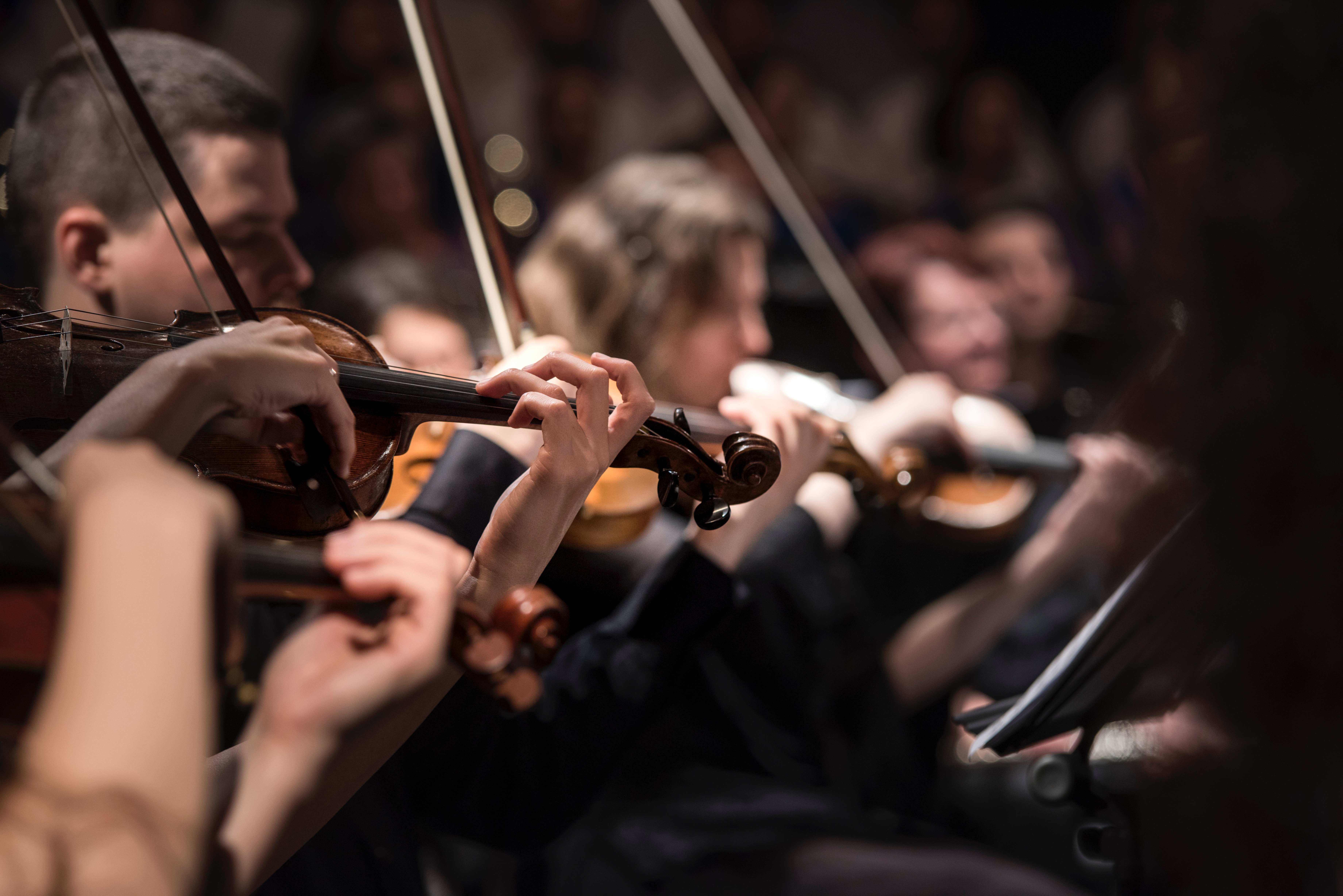Ashamed to Play So Well? What Plutarch Gets Right About Musicians and Pride

Musicians are not usually the most humble people you’ll meet. I will never forget my bitter annoyance when one of my fellow orchestra members in middle school was appointed concertmaster in our intermediate level children’s orchestra. What had she done to deserve being placed above me? I went so far as to propose a violin dual, arbitrated by our conductor, wherein I might prove my superiority and heal my tainted pride.
Now I look back at that, and similar memories, with embarrassment at my childishness. Still, even at a high school level—where everyone has acquired slightly more tact—it is surprising to see how much the balance of egos influences the relationships between the various players. Once I felt offended and unrecognized when another boy, who had been absent from rehearsal for two straight months, was placed in a seat ahead of me. Though I try not to give into these feelings, I can’t help but be irritated whenever one of my peers gets a solo. It’s easy to convince myself that “it should have been me.” When I know it really shouldn’t have been me, I can patch my pride with, “If only I cared about such silly things as the violin, I would be the best.”
Even adults seem to be susceptible to this trap. A particular example was an awkward, but slightly hilarious, class in which two teachers, who each clearly thought himself to be far more knowledgeable, contradicted each other practically non-stop throughout the “lesson.”
The Roman historian Plutarch, in his Life of Pericles, proposes an opposite reaction to musical ability. Plutarch, in the voice of King Philip to his son Alexander, asks us, “Are you not ashamed, son, to play (music) so well?” My initial reaction to this was confusion. It seemed obvious that people shouldn’t be made to feel bad for doing something skillfully and well. Plutarch goes on to qualify his statement. “He who busies himself in mean occupations produces, in the very pains he takes about things of little or no use, an evidence against himself of his negligence and indisposition to what is really good.” What could this statement possibly mean? How is music a “mean occupation” and how is practice “negligence”?
Plutarch, of course, is taking an extreme stance on this issue. The Bible, specifically Psalm 150, commands us to praise God “with blasts upon the horn, praise him with harp and lyre.” Still, his point holds some truth. Music—and certainly sports and video games—are pursuits that should be ends in themselves. Music has always been a way for humans to make merry together and mutually delight each other. Any church worth its salt, for example. involves the singing of hymns to some degree or another because music is a way in which the human community draws together. Families sing carols together to celebrate and praise God while enjoying each other’s company. All of these things are most certainly “really good” with nothing mean or base about them.
Imagine though, that in singing carols together Christians were encouraged to outdo each other at all costs. Imagine if upon coming home from church, Christians complained about the hymns, not because the music was bad or problematic in content or because they felt that people were not doing their best to praise God in song, but because they were annoyed at being outdone by the family in the next pew.
Does practicing for hours on end so that you can show your conductor that you’re better than the person next to you glorify God? Does using your time to prepare a perfect solo piece to impress an audience show a love of virtue or a love of fame? If someone enjoys practicing and sees it as an opportunity to relax and enjoy oneself, becoming a virtuoso violinist as a result, that seems like no sign of fault. On the other hand, if someone, like me, who often finds extended practice sessions monotonous and uncomfortable uses their time to that end in the pursuit of a flashy public performance, instead of for the joy of others and the glory of God, then might they not be ashamed of how they’re using their time and talents?
On the other hand, some of us, like Alexander the Great, are not all called to be devotees of music. Though the study of music should be part of any holistic education, for most people dreams of becoming a professional soloist, band-member, or singer are just as far-fetched as those of becoming an NFL player. Showing too much attention to one particular area can be a sign of neglect for the real vocation to which God is calling you. How many famous violinists, opera singers, or pop-stars are known for their faith and family values? Plutarch gives us the example of Antisthenes who, upon being told a certain person was an excellent piper, said, “It may be so, but he is but a wretched human being, otherwise he would not have been an excellent piper.” Even though it’s often unwise to assume something based on a sweeping generalization, these words must give us some pause.
I, like most musicians around Christmas, had several musical events coming up this past December. Notably I was about to play at my church for Christmas Eve mass and had a competition coming up. I naturally put the competition first; there’s a cash prize and an opportunity for the winner to perform in front of hundreds of people. Was this the very mindset—pursuing music for glory—that made Plutarch criticize professional musicians?
Music, like many other things, can only be valued in the pleasure it gives to others and the glory it gives to God. Though we can’t agree with all his condemnation of musicians—especially those who use their gifts to glorify God—Plutarch’s statements give us a chance to pause and think about what we are called to use our God-given talent for.
Michael James Thomas Hoffman
Michael Hoffman is a high school Junior and Roman Catholic from Erie Pennsylvania. He enjoys playing and composing music, redrafting his incomplete novels, running, and Taekwondo sparring.








3 thoughts on “Ashamed to Play So Well? What Plutarch Gets Right About Musicians and Pride”
Keep up the good work, Michael!
Oh, wow. This post has really made me think about my own motivations as a musician. I’ve often struggled with feeling ashamed of my own playing, and Plutarch’s insights into the nature of pride and excellence have helped me see things in a new light. It’s amazing how often we can get caught up in the desire to be better than others, rather than focusing on doing our best for its own sake. Thank you for sharing this piece – it’s definitely given me some food for thought.
You failed to miss. Alexander was destined to rule. To play the lyre and sing well meant that he was forsaking the true nature of what was going to make great: waging war successfully. To a man born into the kingship, becoming a philosopher, or generally an artist is an act of dishonesty. Plutarch understands this, because he was not born into any high nobility. If I was prince, why should I pledge myself to making artistic contributions when I was destined to rule as higher nobility. Likewise, If I was born in to the burgeois family of a magnate: – why in hell should I perform little arts and forsake my duty and responsability for continuity? You miss.